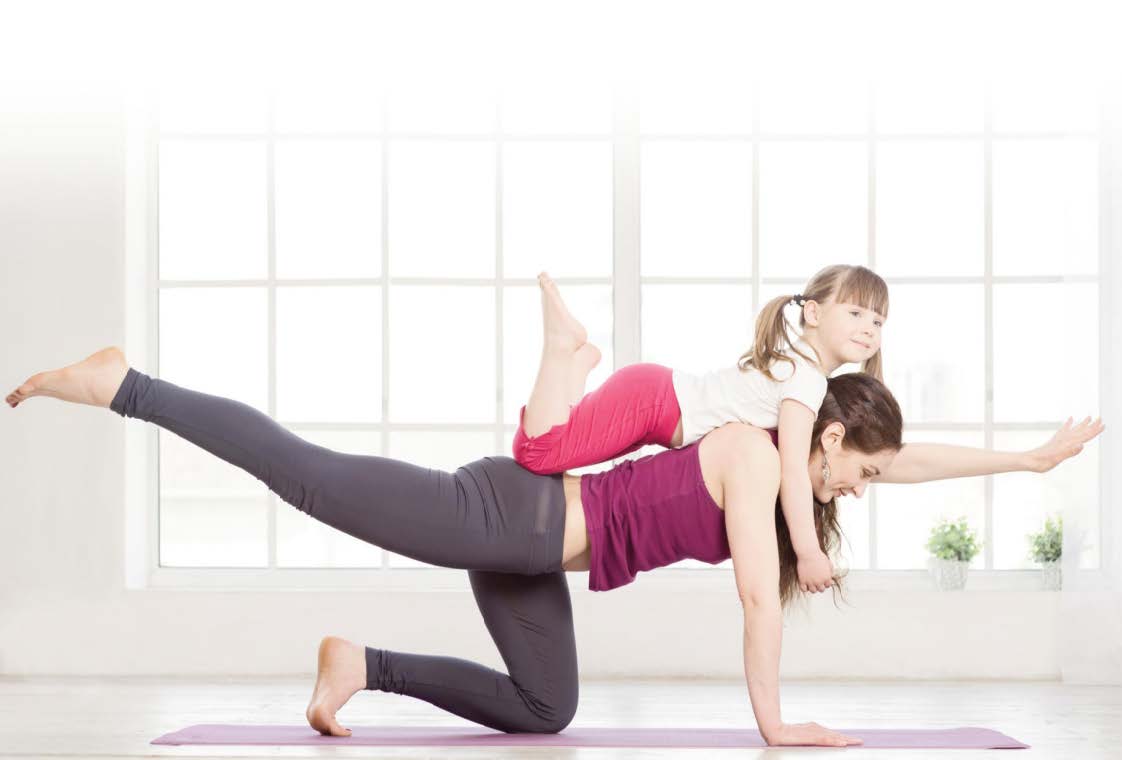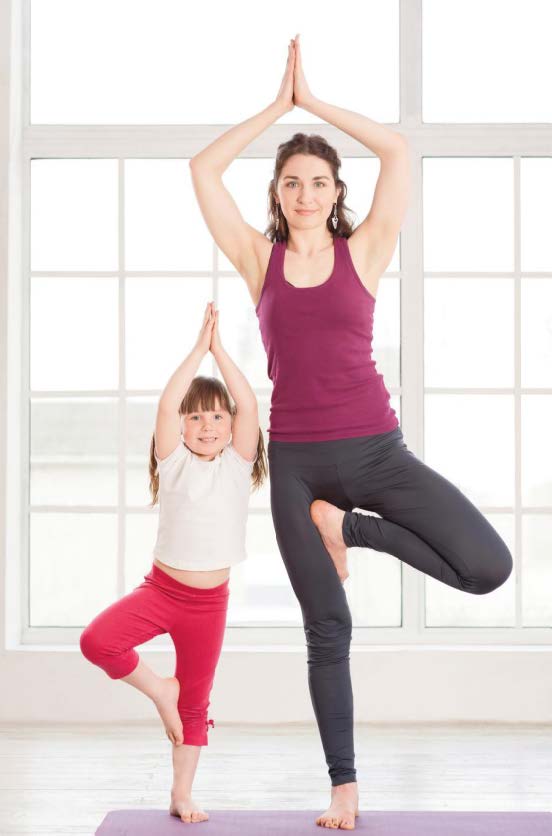Caring for Yourself is Caring for the Family

If you get sick or injured, then everybody loses, right? You cannot perform your job, and the person who relies on you is also now in trouble.
Parenting is tough. It is a non-stop job, and you do not get sick days. Parenting for a child with a disability can be even more challenging because you may not be able to find a sitter who can help with any short reprieve. This can impact your marriage if you and your spouse do not get time together. It is important to recognize these additional challenges in order to address them. Your job is to give care to others, but many people forget that they have to make time to care for themselves. If you get sick or injured, then everybody loses, right? You cannot perform your job, and the person who relies on you is also now in trouble. While optimal health has many facets, we will focus on exercise. Exercise decreases the risk for common health complications such as heart disease and diabetes. We are all at an increased risk for these as we age, but a lack of exercise increases this risk further as well as increases your risk at a younger age. You know what else increases the risk for these complications? Stress! Parenting can be quite stressful! These health complications do not actually have many symptoms, right? It may be easy to not pay attention or even think about preventing when there are more pressing issues that need your immediate attention. But with any of these conditions, you are at an increased risk for a heart attack or stroke – either of which may significantly impair your ability to care for your children. Diabetes can be devastating on the whole body and can cause many unpleasant symptoms. Again, these are within your control, and can be prevented with exercise. If you get diagnosed, exercise can help manage them. Exercise can also help to keep you strong. Parenting, especially for a growing child who has a disability, is a physically demanding job. If you hurt your back or sprain a joint, again you won't be able to do your job and everybody loses. Exercise can help prevent injury – stronger muscles support joints! Exercise also helps boost your immune system so you don't get those pesky little illnesses like a cold or flu that can also impact your ability to work, as well as just be annoying. Exercise is also important for weight management. The more weight you have to move around, the harder the physical stress on your body and increased risk for injury, and the harder it becomes to physically help move another person's body.


JOB SECURITY: As a parent, your job is to give care to others, but many forget that they have to make time to care for themselves. It is a non-stop job, and you do not get sick days.
Again, parenting is stressful! You should acknowledge that, and give yourself a break when it gets overwhelming. That is understandable. But again, stress can cause physical symptoms, and that is one important reason to find a healthy outlet. Additionally, if you let it affect your mental wellbeing, you again may not be able to give care. The good news is that exercise is a wonderful way to relieve stress! It releases endorphins which are our "feel good" neurotransmitters. It can also help the production of serotonin and dopamine to ward off depression and anxiety, as well as just help to stabilize your mood. Sometimes we can get irritable when we are stressed.
Additionally, exercise can help you get a better night of sleep. This can be tough for many reasons when you are a parent; you may have to get up multiple times to help your child turn in bed, or go to the bathroom, or you may not get a deep sleep due to your stress. That fatigue can be a physical and mental stress on the body. While exercise cannot help you get more sleep, being able to get into a deeper sleep dur ng the hours you have can help decrease fatigue. This can also contribute to decreased perceptions of your stress, as well as any pain you may have.

HIGHER AND HIGHER: Exercise and lean body mass boosts your metabolism. Muscle needs more calories to sustain than does fat, therefore the more muscle mass you have, the more calories you need to sustain your weight, due to higher metabolism.
Exercise can help to manage pain, which is a problem for many people. Exercise can help fix some muscular imbalances that lead to pain. A common issue is low back pain. Many of us have hip flexors from sitting too much. These are the muscles on the front of your hips, and attach to the lower spine, and when the body stands upright, the tight muscles will pull on the lower back, leading to pain. Exercise can help stretch these tight muscles, as well as strengthen the muscles around the core, all contributing to less pain.
Being physically inactive is one of the biggest risk factors for heart disease. That's because the heart is a muscular organ, and like all muscles, it needs exercise to perform at its peak. Exercise increases cardiac output (blood pumped) throughout the body, better delivering nutrients and oxygen to the body and removing toxins and waste out of the body. More important, exercise increases the amount of oxygen your body receives and delivers through the blood to your entire body, especially to your brain.
The definition of exercise is "physical activity that is planned, structured, and repetitive for the purpose of conditioning any part of the body. Exercise is used to improve health, maintain fitness and is important as a means of physical rehabilitation." There are two main types of exercise: strengthening and aerobic. Strengthening exercise increases muscle strength and mass, bone strength, and the body's metabolism. It can help attain and maintain proper weight and improve body image and self-esteem. Strengthening exercises increase muscle strength by putting more strain on a muscle than it is normally accustomed to receiving. This increased load stimulates the growth of proteins inside each muscle cell that allow the muscle as a whole to contract. There is evidence indicating that strength training may be better than aerobic exercise alone for improving self-esteem and body image. Weight training allows one immediate feedback, through observation of progress in muscle growth and improved muscle tone. Cardiovascular exercise is sustaining a level of activity level for heart health and increasing endurance.
For strengthening, you need to work the muscle at a load that it is not accustomed to. If you are lifting a weight or using a weight machine, you want to choose a resistance that is hard to finish 10 reps. You should feel the burn in the muscle, otherwise you aren't using enough weight. After about 8-12 reps, you should feel like you need to rest. You want to lift this weight in a slow, controlled manner. This prevents injury but, more important, it is not using momentum to complete the motion. Moving fast one after the other makes it easier on the muscle, and you aren't getting the full workout. Go slowly in both directions – pushing and pulling. You do these workouts less, like 2-3 times per week to allow your muscles to recover, giving them time to build.

WEIGHT FOR IT: The photo above demontrates how one pound of muscle (red) compares to one pound of fat (yellow). Notice how the muscle, which is the equivalent weight of the fat, is smaller in size. You may not see a huge change on the scale, but you may notice your clothes getting looser!
Aerobic exercise includes dancing, walking, sports, swimming or using machines like the arm bike or rowing. Anything that involves you moving for an extended period of time. I recommend at least 20 minutes at a time, but you may need to start lower and work your way up. This type of exercise can be done more days per week. Remember that exercise is a stress on the body. It may not be comfortable when you first start, but if you don't get into that uncomfortable state, you won't be getting the benefits.
Exercise and lean body mass boosts your metabolism. Muscle needs more calories to sustain than does fat, therefore the more muscle mass you have, the more calories you need to sustain your weight, due to higher metabolism.
This is the biggest excuse people have for not working out. For optimal heart health, you should get at least 30 minutes of moderate to intense exercise most days — if not every day — of the week, according to the American Heart Association.
If you can't do 30 minutes at a time, divide it into three 10-minute segments per day and you'll reap the same benefits.
Exercise gives you enegy! You might be surprised at how, say, popping in a workout tape for 30 minutes in the morning can change your whole day. When endorphins are released into your bloodstream during exercise, "you feel much more energized the rest of the day."
Be sure to make time to get exercise. It will keep your body and your mind healthy so you can be the best parent! Get everyone in the family to exercise together, and it can be a healthy bonding activity.•